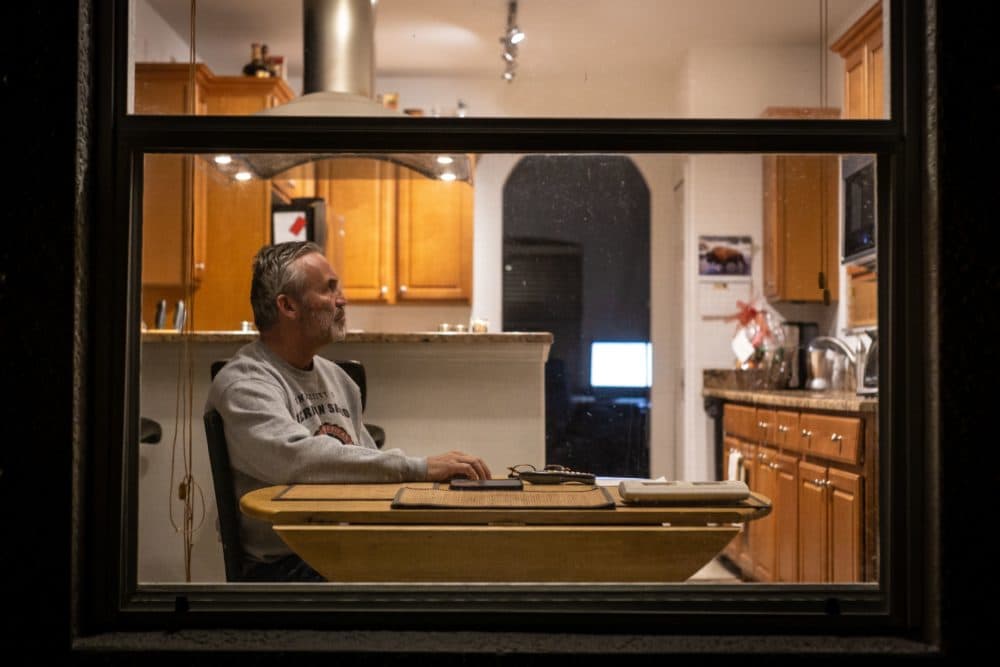Advertisement
What We Need From TV News During The Coronavirus Crisis
Resume
With around-the-clock television coverage of the coronavirus pandemic, TV is still a powerful, influential source of information. But is this the kind of TV news that best serves the public?
Guests
David Folkenflik, NPR media correspondent and host and editor of On Point. Author of "Murdoch's World: The Last of the Old Media Empires." (@davidfolkenflik)
From The Reading List
NPR: "Pandemic Threatens Local Papers Even As Readers Devour Their Coverage" — "The email came in from the editor of a small newspaper in Seaside, Calif. And she wasn't the bearer of good news.
"Instead, she offered a small data point in a larger and troubling dynamic: The pandemic threatening the nation's public health is swiftly jeopardizing the local journalism that keeps its citizens informed about what's happening in their own communities.
"'Our paper, an independent weekly, very sadly laid off one-third of our staff,' Sara Rubin, who runs the newsroom for the Monterey County Weekly, wrote recently in an email to me."
NPR: "Facebook Pledges $100 Million To Aid News Outlets Hit Hard By Pandemic" — "Facebook says it's dedicating $100 million to prop up news organizations pummeled by the financial effects of the coronavirus pandemic.
"Just two weeks ago, the company announced it would devote $1 million to aid local newsrooms in the U.S. and Canada covering the crisis. It turns out, Facebook was already thinking about giving far more.
"'All these journalists are working around the clock under very difficult circumstances to try to keep us all informed,' Facebook Vice President for Global News Partnerships Campbell Brown, a former anchor for CNN and NBC News, told NPR. 'And at the same time, their news organizations are struggling because of the economic fallout from the outbreak.'"
CNN: "The scariest aspects of the coronavirus are what we can't see on TV" — "We see the daily counts of coronavirus cases and deaths; the long lines for tests; and the White House briefings where the president pretends the situation is not dire.
"But we're not able to see inside the emergency rooms and intensive care units where this invisible demon is being fought. We're not able to see the front lines. Or the full extent of the human suffering. We only hear about the battle through the testimonies of doctors and nurses; though the pleas of governors and mayors; and through interviews with patients who are well enough to call in via Skype.
"Does this distort the public's understanding of the virus? Does the lack of visibility make it hard for some folks to process how serious this pandemic is? I asked Esther Choo, emergency physician and health care advocate who started the #GetMePPE hashtag last week."
Journalism.org: "Americans Immersed in COVID-19 News; Most Think Media Are Doing Fairly Well Covering It" — "The COVID-19 pandemic has caught Americans’ rapt attention. Roughly half of U.S. adults (51%) are following news about it very closely, with another 38% following it fairly closely, according to a new Pew Research Center Election News Pathways survey conducted from March 10-16, 2020.
"During this period, the number of confirmed cases in the United States increased from about 650 to over 3,000, the World Health Organization declared the COVID-19 outbreak a pandemic, President Donald Trump announced a ban on travel to the U.S. from European countries and many universities announced closures or remote classes.
"Americans give the news media fairly high marks for their coverage of COVID-19, though most think their reporting has at least somewhat exaggerated the risks.
Misinformation has also found its way into the information stream. About half the public (48%) say they’ve been exposed to at least some made-up news and information related to the virus."
The Washington Post: "The media must stop live-broadcasting Trump’s dangerous, destructive coronavirus briefings" — "More and more each day, President Trump is using his daily briefings as a substitute for the campaign rallies that have been forced into extinction by the spread of the novel coronavirus.
"These White House sessions — ostensibly meant to give the public critical and truthful information about this frightening crisis — are in fact working against that end.
"Rather, they have become a daily stage for Trump to play his greatest hits to captive audience members. They come in search of life-or-death information, but here’s what they get from him instead."
This program aired on March 31, 2020.

